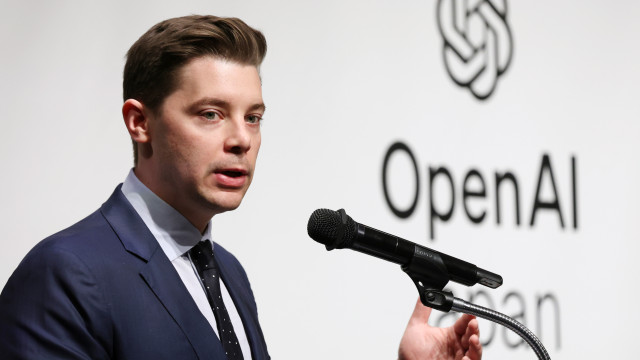OpenAI has released a more efficient and powerful version of the artificial intelligence technology that underpins its popular generative tool ChatGPT, AFP reports.
The update to OpenAI's flagship product came a day before Google made its announcements about Gemini, the search engine giant's own artificial intelligence tool that competes with ChatGPT.
"We are very, very excited to make GPT-4o available to all of our free users out there," Chief Technology Officer Mira Murati said at the highly anticipated launch event in San Francisco.
The new model will be deployed in OpenAI products in the coming weeks, the company said.
Murati and engineers from OpenAI demonstrated the new capabilities of GPT-4o at the virtual event, asking questions and posing challenges to the enhanced version of the ChatGPT chatbot.
"We know these models are getting more complex, but we want to make the experience of interaction actually more natural, easy," Murati said before the demonstration.
This included asking ChatGPT questions in human-sounding Italian and asking the bot to interpret facial expressions or do complex math equations.
The event is just the latest episode in a race in artificial intelligence in which OpenAI-backed Microsoft has overtaken Apple as the world's largest company by market capitalisation.
OpenAI and Microsoft are in a fierce rivalry with Google for the role of major player in the field of generative artificial intelligence, but Meta, owner of Facebook, and the newly created company Anthropic are also making big moves to compete.
All companies are trying to find ways to cover the huge costs of generative AI, much of which goes to the giant Nvidia and its powerful GPUs.
For now, less efficient versions of OpenIA or Google's chatbots are available to customers for free, with questions still being asked about whether the general public is willing to pay a subscription to maintain access to the technology.
AI creators are also feeling pressure from developers who are demanding payment for the content used to train their models, which is also likely to make the technology more expensive.
OpenAI has signed content partnerships with the Associated Press, Financial Times and Axel Springer, but is also embroiled in a major lawsuit with the New York Times.
It is also facing separate lawsuits from artists, musicians and authors in US courtrooms. /BGNES







